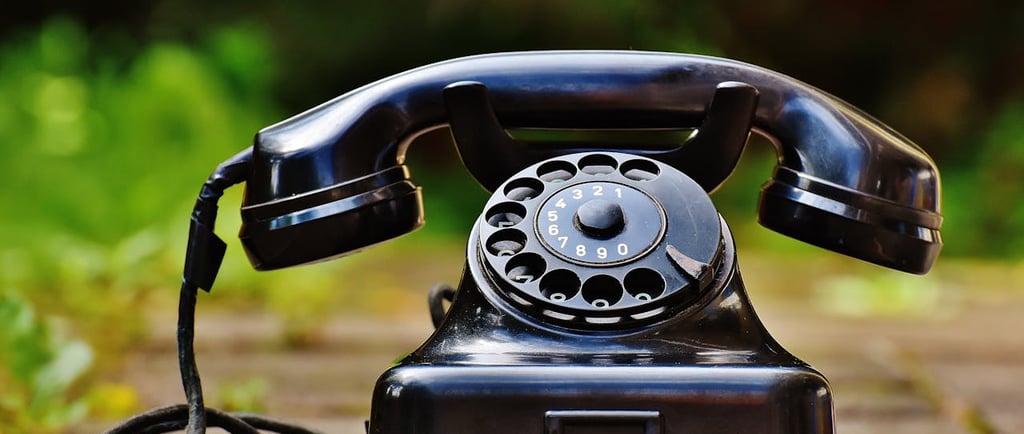5 Cold Calling Mistakes
Halt right here to steer clear of common pitfalls. This blog reveals five critical cold calling mistakes that can sabotage your efforts. Learn how to sidestep blunders, hone your approach, and convert cold leads into warm prospects successfully. Don't miss this vital guide!
Mohammad Danish
7/21/20204 min read


If you've ever made a cold call, then you know how difficult it can be to connect with a complete stranger. You also know how frustrating it can be when a call goes wrong. To help you avoid those dreaded cold calling mistakes, we've compiled a list of the five most common errors people make.
Lack of Preparation
The number one mistake salespeople make when cold calling is not preparing for the call. This can take many forms, such as not having a clear understanding of what you're selling, not knowing who your target customer is, and not having a script or set of questions to guide the conversation. This lack of preparation often leads to an unsuccessful call, where the salesperson fails to make a connection with the prospect or gain any useful information. In some cases, it can even damage the relationship between the company and the potential customer. To avoid this mistake, take the time to prepare for each call in advance. Know what you're selling and who your target customer is. Have a script or set of questions ready to guide the conversation. And most importantly, listen carefully to what the prospect says and be prepared to adjust your pitch accordingly.
Using a script
This may seem like an obvious one, but many salespeople make the mistake of using a script when cold calling. This can come across as sounding robotic and unprofessional. Instead, try to sound like you’re having a conversation with a friend. Cold calling can be a tough process, but using a script can help make it easier. By having a set script to follow, you can avoid many of the common mistakes that salespeople make when cold calling.
Asking closed-ended questions
Asking closed-ended questions is another common mistake made when cold calling. These types of questions can often lead to dead ends and make it difficult to keep the conversation going. When speaking with a potential customer, it’s important to ask questions – but not just any questions. You want to avoid asking closed-ended questions. These are questions that can be answered with a simple “yes” or “no.” Instead, you want to ask open-ended questions that will encourage the person on the other end to keep talking. Open-ended questions typically begin with who, what, when, where, how, or why.
Taking too much time on call
Sales representatives who spend too much time on each call are likely making one or more of these mistakes. They are not prepared. The best sales reps come into each call armed with knowledge about the customer, the product, and the competition. They know their talking points and they stick to them. If you're taking too much time on each call, it's likely because you're winging it and not being as prepared as you should be. They are trying to do too much. A good sales rep knows that the goal of a cold call is simply to start a conversation, not to make a sale. If you try to do too much on each call, you'll end up sounding like a used car salesman and no one wants to talk to someone like that. They are not staying focused.
Passive Conversations
When you’re making cold calls, it’s important to sound engaged and interested in what the other person has to say. Unfortunately, some salespeople make the mistake of having passive conversations, where they do most of the talking and the prospect does most of the listening.
Here are a few tips to avoid having passive conversations on your next cold call:
Don’t just regurgitate your script. Take the time to listen to what the prospect has to say and then tailor your message accordingly.
Ask questions throughout the conversation to keep it interactive.
Keep your energy level up so you don’t sound bored or disinterested.
Be prepared for objections and have a plan for how you’ll address them.
For example, if you re a financial advisor and your prospect says, I m not interested in investing, you might respond by saying, I understand that. The reason I called is because I think it s important for all of us to take control of our own financial futures.
Not asking probing questions
Cold calling can be a tough gig- you're constantly putting yourself out there and hearing a lot of no's. It's important to remember that every no gets you closer to a yes, but there are a few things you can do to increase your chances of success. Another mistake salespeople make is not asking enough questions. You need to find out as much as you can about your potential customer in order to determine whether or not they're a good fit for your product or service. What pain points are they experiencing? What would a successful outcome look like for them? The more you know, the better equipped you'll be to make a compelling case for why they should do business with you.
Conclusion
When it comes to cold calling, there are a few common mistakes that many salespeople make. By avoiding these mistakes, you can improve your chances of making a successful call and landing a new client. Some of the most common cold calling mistakes By being aware of these mistakes and taking steps to avoid them, you can improve your success rate when cold calling. With a little practice and preparation, you can master the art of cold calling and boost your business.
Journey well taken
Sharing life insights on marketing and motorcycling adventures.
Connect
Explore
contact@danishspeaks.com
© 2025. All rights reserved.
